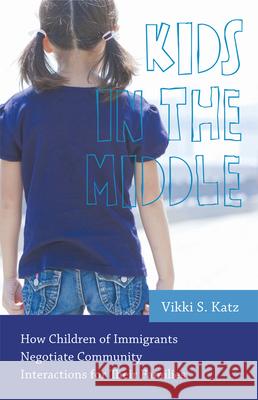Kids in the Middle: How Children of Immigrants Negotiate Community Interactions for Their Families » książka
Kids in the Middle: How Children of Immigrants Negotiate Community Interactions for Their Families
ISBN-13: 9780813562186 / Angielski / Miękka / 2014 / 224 str.
Kids in the Middle: How Children of Immigrants Negotiate Community Interactions for Their Families
ISBN-13: 9780813562186 / Angielski / Miękka / 2014 / 224 str.
(netto: 153,93 VAT: 5%)
Najniższa cena z 30 dni: 158,64
ok. 22 dni roboczych.
Darmowa dostawa!
Complicating the common view that immigrant incorporation is a top-down process, determined largely by parents, Vikki Katz explores how children actively broker connections that enable their families to become woven into the fabric of American life. Children's immersion in the U.S. school system and contact with mainstream popular culture enables them more quickly to become fluent in English and familiar with the conventions of everyday life in the United States. These skills become an important factor in how families interact with their local environments. Kids in the Middle explores children's contributions to the family strategies that improve communication between their parents and U.S. schools, healthcare facilities, and social services, from the perspectives of children, parents, and the English-speaking service providers that interact with these families via children's assistance. Katz also considers how children's brokering affects their developmental trajectories. While their help is critical to addressing short-term family needs, children's responsibilities can constrain their access to educational resources and have consequences for their long-term goals. Kids in the Middle explores the complicated interweaving of family responsibility and individual attainment in these immigrant families.
Through a unique interdisciplinary approach that combines elements of sociology and communication approaches, Katz investigates not only how immigrant children connect their families with local institutional networks, but also how they engage different media forms to bridge gaps between their homes and mainstream American culture. Drawing from extensive firsthand research, Katz takes us inside an urban community in Southern California and the experiences of a specific community of Latino immigrant families there. In addition to documenting the often-overlooked contributions that children of immigrants make to their families' community encounters, the book provides a critical set of recommendations for how service providers and local institutions might better assist these children in fulfilling their family responsibilities. The story told in Kids in the Middle reveals an essential part of the immigrant experience that transcends both geographic and ethnic boundaries.










